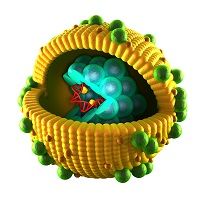Article
Cherokee Nation Tackles Hepatitis C with Screening and Treatment Project
Author(s):
A project to wipe out hepatitis C among the Cherokee Nation to has led to successful screening of thousands of people since the effort was launched a year ago, say tribal leaders.
among the Cherokee Nation to has led to successful screening of thousands of people since the effort was launched a year ago, say tribal leaders.
Organizers announced last fall that the aim of the study called Optimizing Care and Setting a Path Towards Elimination of Disease and Disparity was to prevent and treat the hepatitis C virus, a disease which can lead to cirrhosis of the liver and serious illness, according to a Cherokee Nation news release. Since that time Cherokee Nation Health Services has partnered with the Centers for Disease Control and Prevention as well as the Oklahoma Department of Health and the University of Oklahoma to help research and track results.
“A year into our program we are seeing a high success rate to screen and treat patients, and our hope is to eliminate this disease entirely within the Cherokee population,” Cherokee Nation Principal Chief Bill John Baker stated in the release. “Staying ahead of the rate of infection requires vigilant testing, screening, treatment and creative strategies to prevent future cases. I’m proud that the Cherokee Nation can work on preventative measures to help our people now and in the future.”
The Gilead Foundation donated $1.5 million to pay for screening kits and research. Gilead Sciences is maker of the hepatitis C drug Sovaldi, one of the first direct-acting antiviral treatments for the virus approved by the US Food and Drug Administration and other regulatory agencies around the world.
Hepatitis C is a bloodborne virus that can lead to serious liver disease if left unchecked. While the immune system in some people clears the virus naturally, health officials estimate that about 70% of people who get hepatitis C will become chronically infected.
Hepatitis C disproportionally affects Cherokee and other Native American populations in the US. Compared to any other racial/ethnic group in the US, American Indians and Native Alaskans have the highest incidence of acute hepatitis C infection and are at greater risk of mortality associated with hepatitis C, according to 2013 data from the CDC.
Since the CDC-monitored project began a year ago, the Cherokee tribe has screened 23,000 patients for hepatitis C and has a target goal over three years to screen 80,000 among those ages 20 to 65 years old. So far, about 400 new patients tested positive for the virus and some 300 are being treated for hepatitis C or have been cured, according to the release.
“Everything is going very well and progressing, and we’re meeting the goals we set,” Jorge Mera, Cherokee Nation’s director of infectious diseases stated in the release. “I’d like our patients to know they can request to be screened by a provider, and, if they have the virus, the Cherokee Nation has a cure.”
Related Coverage:
DAA Combination Treatment Fast and Effective for Hepatitis C






